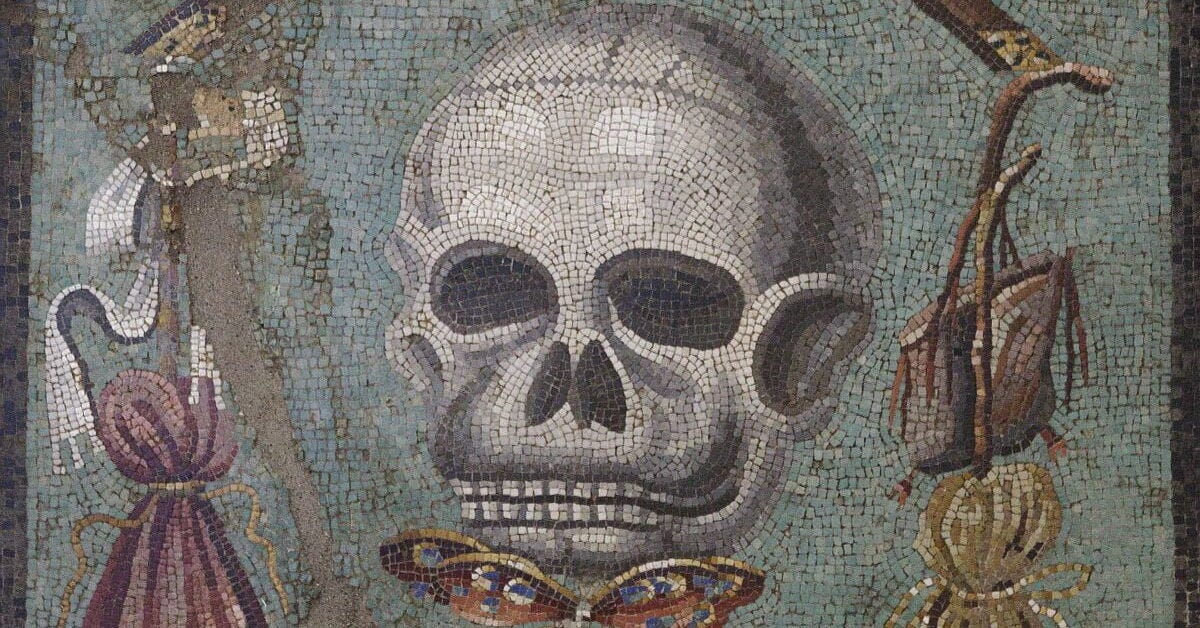History of Lemuralia
The tradition of Halloween traces some of its roots back to the ancient Roman holiday of Lemuralia, celebrated in early May. Lemuralia was a ritual where Romans sought to appease restless spirits, or "lemures," believed to haunt the living. Families performed various customs, like throwing black beans over their shoulders and clanging pots to drive spirits away from their homes, warding off malevolent forces. While Lemuralia itself didn’t directly evolve into Halloween, the concept of honoring or appeasing spirits influenced later traditions. When Romans encountered the Celtic festival of Samhain, also focused on spirits and the afterlife, these customs intermingled over centuries, contributing to the Halloween traditions we know today.
Today, we Romanists celebrate Lemuralia in the customary way specific to our nations. We also make a special offering of black beans to the lemures with the prayer below. We offer to appease them and ward off their negative influence over our homes. We may set up a small Lemure shrine for these offerings or offer them at our regular home altars.
Prayer for Lemuralia
May this prayer evoke the solemn and respectful spirit of Lemuralia, as we remember and honor the spirits of the departed in the quiet shadows of the night.
O spirits of the Lemures, in the silent night,
Lemuralia's sacred veil is thin and light.
In the realm of shades, where memories linger,
We invoke your presence with humble fingers.
Lemures, restless spirits of the departed,
In the dance of shadows, your essence started.
As the veil between worlds gently sways,
Guide us through the ancient, ghostly maze.
On this night of Lemuralia, in reverence we stand,
To honor the spirits in this shadowed land.
May the offerings we make, a token of respect,
Bring peace to the souls that we connect.
Lemures, silent phantoms in the night,
In the flickering candlelight, you take flight.
As we remember the departed with love and care,
May your whispers in the winds declare.
Grant us, oh Lemures, a tranquil night,
Where the spirits find solace in the gentle light.
In this sacred moment of remembrance and release,
May the ethereal realms bring us inner peace.
O Lemuralia, with spirits old and wise,
May your veil be a bridge to the celestial skies.
In the dance of shadows and flickering flame,
May the spirits find peace, in your name.
With these offerings I redeem me and mine. Ancestral spirit, depart!
Hymn for the Calends Eve
O Juno, Queen of Heaven’s bright expanse,
Majestic Goddess, with your regal glance,
On this eve of Calends, we raise our song,
To thee, whose power and might have ruled so long.
O wife of Jove, whose voice the skies obey,
In golden chariot, thou dost lead the day,
With peacock plumes that trail in splendor bright,
And eyes that glitter with celestial light.
On this sacred eve, we humbly pray,
With offerings pure, we seek thy favor's ray,
Bestow thy blessings, keep us in thy care,
O Queen of Heaven, hear our solemn prayer.
Thy power is boundless, thy wisdom vast,
In every age, through eons that have passed,
With reverence, we honor thee tonight,
O Juno, Goddess, in thy radiance bright.
Daily Meditation
"Romulus, complying, called that day the Remuria,
When reverence is paid our buried ancestors.
Over time the harsh consonant at the beginning
Of the name, was altered into a soft one:
And soon the silent spirits were called Lemures too:
That’s the meaning of the word, that’s its force.
And the ancients closed the temples on these days,
As you see them shut still at the season of the dead.”
—Ovid
Fasti, Book V
Monthly Ascesis: Breath and the Pneuma
“In the Western classical tradition, the words for spirit and soul - pneuma, psyche, anima, and spiritus hold profound significance. Interestingly, each of these words also carries the meaning of breath or to breathe. This linguistic connection underscores the belief that breath is the essence of life. In the myth of Prometheus, for instance, it was Minerva’s breath that animated the clay figures of man, giving them life.”
The breath is one of our most powerful tools for spiritual practice and is directly linked to our souls. When we speed up our breathing, our mind speeds up. When we slow it down, our mind slows. Controlling our breath is a leap forward for control of the self and our passions.
“Once you have fixed your breath, you can start to focus on it and use it as an instrument to still the mind. With each breath, there will be a slight pause at the top of the breath and a slight pause at the end of each exhalation. To increase stillness, we will let our minds come to rest in the pause following the exhalation. Breathe out and rest in that moment between breaths. When you feel the need to breathe in again, then do so and come back around to the rest point of the next exhalation.”
-Excerpts from, Ascesis: the Handbook of Platonic Practice
If you would like to subscribe to the Daily Romanist Devotional, please follow the instructions here.




